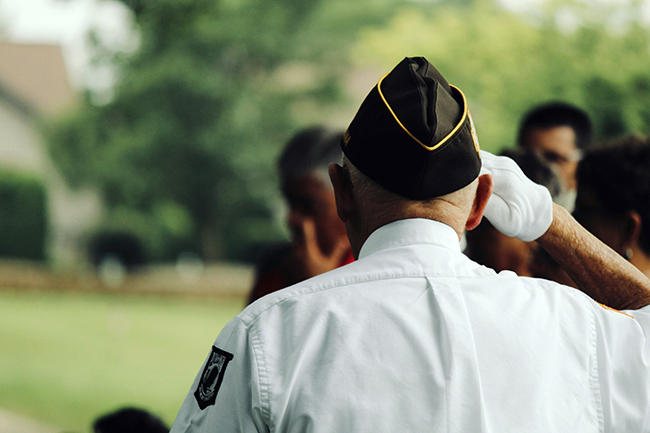Viewpoint: Talk to veterans about substance abuse

Substance use, addiction, and overdose deaths are a growing problem within the veteran community. Photo/courtesy of Sydney Rae, Unsplash
By Michael Leach | Special to the Courier
Substance use, addiction, and overdose deaths are a growing problem within the veteran community. And unfortunately, the stigma surrounding addiction prevents countless veterans from seeking help.
We must continue to destigmatize the discussion about addiction, focus on helping veterans, and highlight how drug education and early intervention play a significant role in reducing substance use, especially with alcohol.
Alcohol is often the catalyst that leads to addiction for many people, as it is commonly used to cope with trauma and pain in all forms. In San Diego County, for example, 21% of adults reported binge or heavy drinking, according to recent data from County Health Rankings and Roadmaps.
It’s impossible to know how many veterans are struggling, but we can still help those close to us. California is home to over 1.8 million service members, the largest veteran population in the United States. Veterans affairs reports that more than two of 10 veterans with post-traumatic stress disorder also have a substance use disorder; there is an increasing need for treatment.
Start the conversation and talk to a veteran about substance use. This simple act could be a turning point that encourages them to get help.
Begin the conversation by focusing on your observations and sharing your feelings. Say things such as, “I’ve noticed you’ve been drinking alcohol a lot. Is everything ok?” or, “I wanted to check in with you because you have not seemed like yourself recently.” Once you have started the conversation, you can ask questions about when they first started feeling like this, if something happened, and it will give you an opportunity to offer support.
Listen without judgment. If there are concerns, call the Veterans Crisis Line by dialing 988, then press 1. Seek other professional help, such as the Veterans affairs resource locator at va.gov/find-locations, or the Substance Abuse and Mental Health Services Administration at samhsa.gov/find-help.
Before the problem spirals out of control, we can all take steps to encourage more education and early intervention. Drug education works; whether it’s a printable pamphlet or speaking with an expert, it helps increase awareness.
Moreover, intervening early enough may save a life. Make a point of having conversations frequently. Be available and encouraging. Tell them to call or stop by at any time. Encourage healthy lifestyle changes, such as eating well, exercising, and adequate sleep.
A veteran may need a person in their life who can provide consistent reminders that things can and will get better. We can all make a difference in the lives of our veterans.
Michael Leach is a New Jersey-based substance use and addiction recovery healthcare professional.









0 Comments